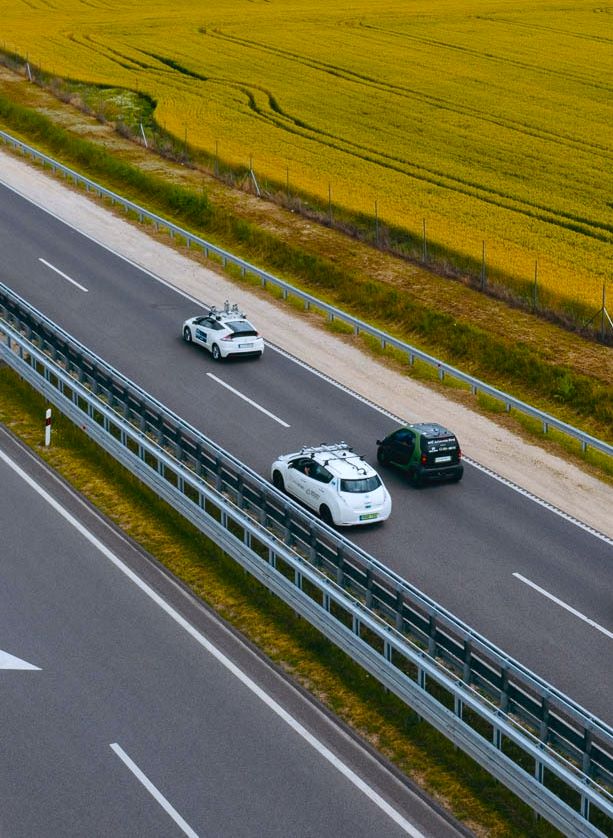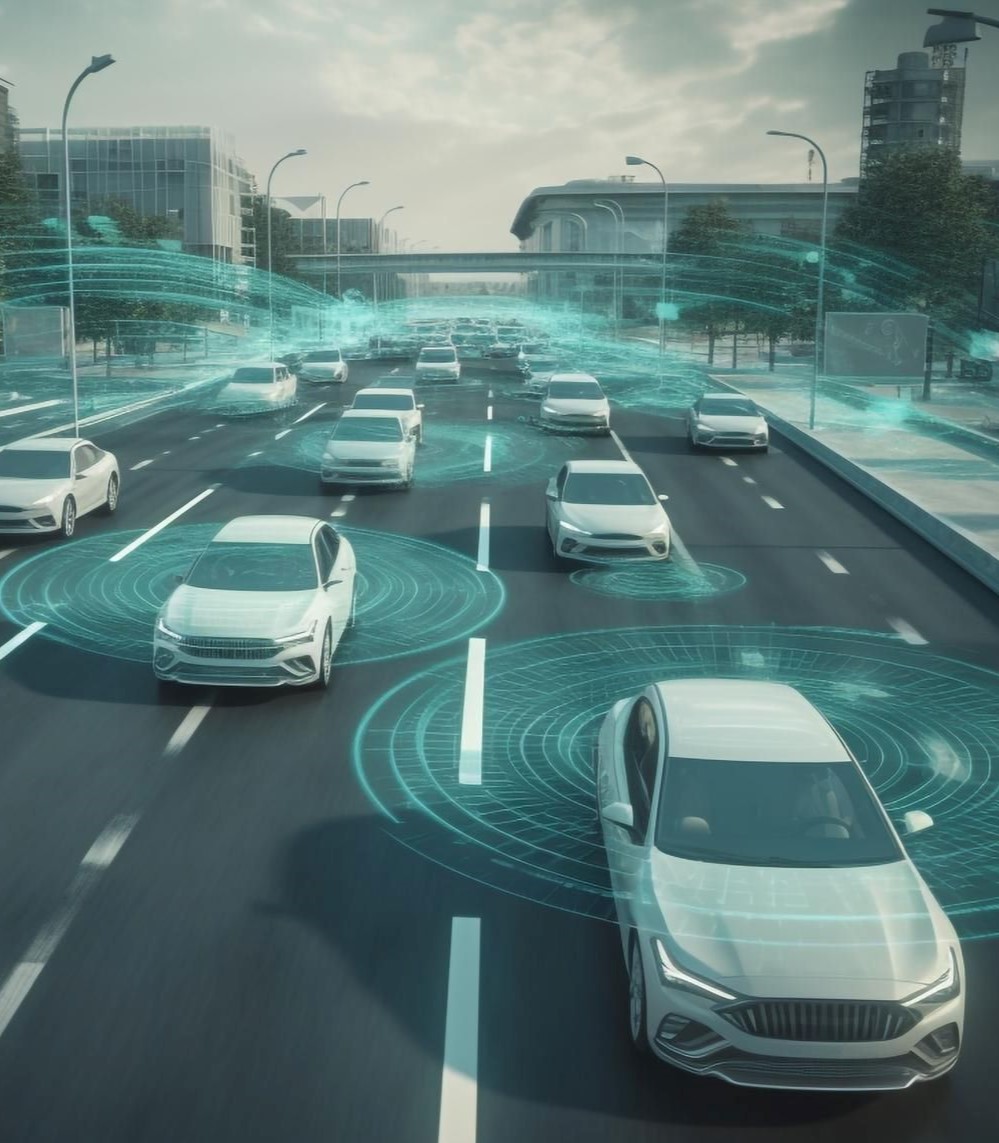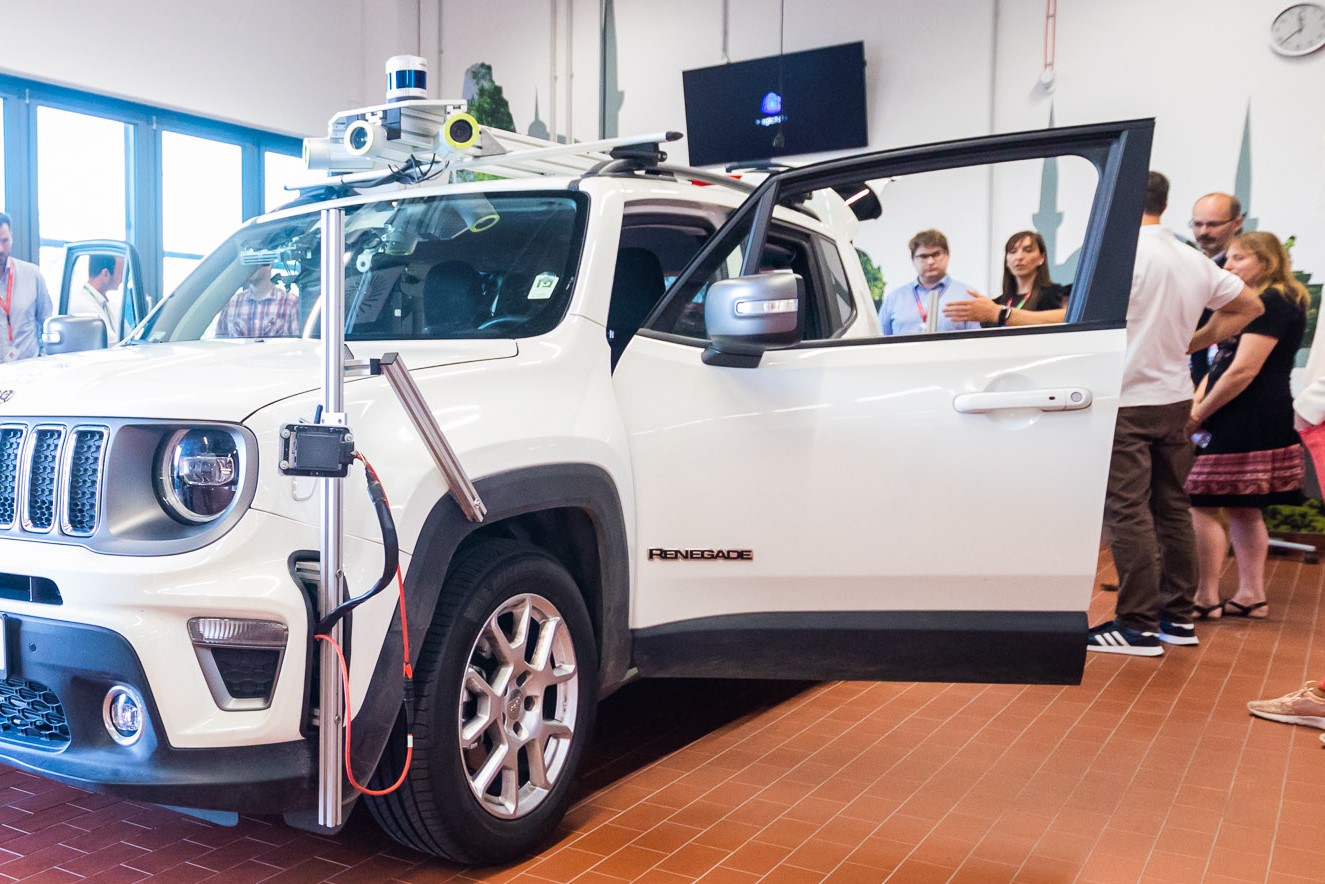Cooperative Perception
Team leader: András Rövid, PhD

The main professional and research areas
The group focuses on AI-enabled environment perception, with a particular emphasis on the development of object recognition and location algorithms using data from different sensors. In addition, they are working on the further development of raw and higher level sensor fusion methods and the creation of digital twin models of the environment in real time, including both static and dynamic objects. This digital twin model will form the basis for the development of advanced features closely related to autonomous vehicles.
Data from sensors installed in infrastructure and vehicles are used to create the digital twin. An essential part of their work is to test and validate the algorithms developed in a real environment. They also focus on the implementation of augmented reality-based tests, which are closely related to scenario in the loop (SCIL) and hardware in the loop (HIL) testing methodologies. These methodologies allow combining real and virtual test environments and thus allow a wider range of traffic situations to be tested compared to previous testing methodologies.
Furthermore, the group is paying particular attention to the development of multimodal sensor calibration methods and the demonstration of different scenarios in virtual or augmented environments.
In addition to theoretical research, the research team is also putting the results into practice, with self-driving vehicles developed in-house, including the Smart Fortwo, with 3 in-house developed functions; the BMW M2 with automated drift function; and the Land Rover Evoque test vehicle equipped with environmental sensing devices and optional steering and pedal robot.
The group works in close cooperation with the ZalaZONE test track. Joint research projects are being carried out with a number of industrial partners, local and international automotive companies, road operators and telecommunications companies.
Key industrial partnerships, most significant projects
Among several ongoing and completed projects, we highlight the following two:
The project “Validation and verification of sensors/components (classical and artificial intelligence based) for self-driving cars by involving the ZalaZONE test track” – 2019-1.1.1 PIACI KFI was funded by the National Research, Development and Innovation Fund (NRDI Fund), in the framework of the “Support for market-oriented research, development and innovation projects (2019-1.1.1-PIACI KFI)”. The consortium is led by the Budapest Development Centre of Robert Bosch Ltd.
The project “Central System for Supporting the Testing and Operation of Automated Vehicles” – 2020-1.2.3-EUREKA-2021-00001, an Austrian-Hungarian cooperation, is led by BME. The main objective of the project is the cross-border testing and joint research and development of automated driving. Several Austrian and Hungarian industrial partners are involved in the project.
Key results that are also of industrial use
In the research and development project involving the ZalaZONE test track, BME and Robert Bosch Ltd. validated and verified the sensors and components required for automated driving. The university-industry collaboration resulted in the validation and verification concept of the latest generation of front camera and radar. This process was further developed and extended by the experts – including measurements to test performance, stability and robustness. A multi-sensor reference measurement system was developed, capable of generating reference data to support the evaluation and validation of these sensors.
The research team’s relations with students
The research group is supported by PhD, MSc and BSc students on a variety of topics, with a special focus on AI-enabled environmental sensing. Students are developing functionalities for complex autonomous systems, testing their operation in real environments, and applying state-of-the-art tools and technologies to solve various problems related to autonomous vehicles, with a focus on environmental sensing and digital twin model generation.
More interesting details can be found on the research team’s website.



